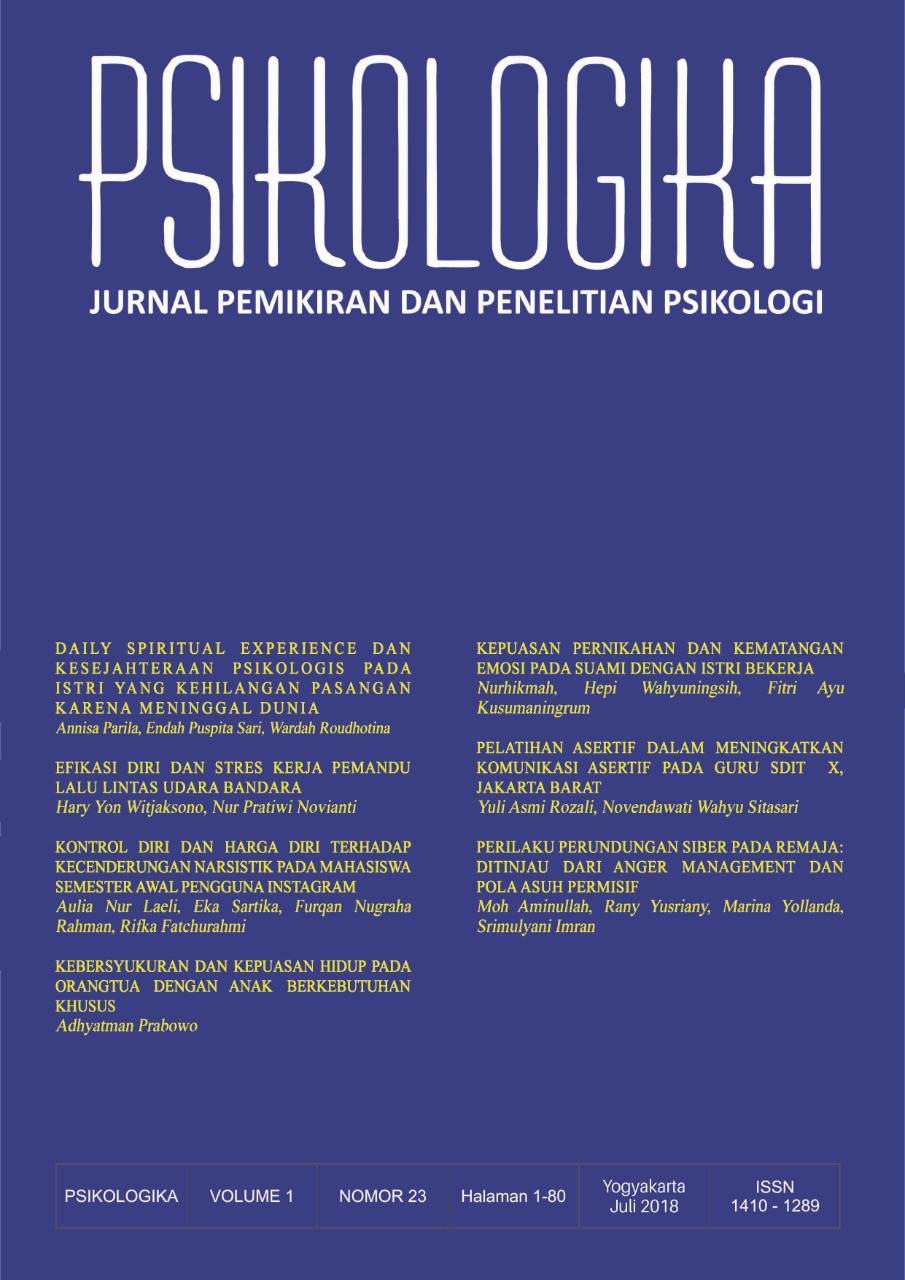Main Article Content
Abstract
This study aims to find the relationship between social support and the caregiver burden for working women of sandwich generation. The hypothesis is tested based on the assumption that social support correlates with the caregiver burden. 108 female subjects working sandwich generation were selected in this study. Data was collected using a social support questionnaire based on the scale of the Multidimensional Scale of Perceived Social Support (MSPSS) developed by Zimet (1988) and parenting burden questionnaire based on the scale of Burden Scale for Family Caregivers (BSFC) developed by Gräsel, Chiu, Oliver (2003). The analysis of this study uses the Product Moment correlation by Pearson. The results of the analysis showed that there was a significant negative relationship between social support and caregiver burden p=0.000 (p <0.05) and r=0.172. The results showed that the higher the perception of social support, the lower the burden of care for respondents.
Article Details
License
Copyright (c) 2019 Psikologika : Jurnal Pemikiran dan Penelitian Psikologi

This work is licensed under a Creative Commons Attribution-ShareAlike 4.0 International License.
Authors who publish with this journal agree to the following terms:
- Authors retain copyright and grant the journal right of first publication with the work simultaneously licensed under a Creative Commons Attribution-ShareAlike 4.0 International License that allows others to share the work with an acknowledgment of the work's authorship and initial publication in this journal.
- Authors are able to enter into separate, additional contractual arrangements for the non-exclusive distribution of the journal's published version of the work (e.g., post it to an institutional repository or publish it in a book), with an acknowledgment of its initial publication in this journal.
- Authors are permitted and encouraged to post their work online (e.g., in institutional repositories or on their website) prior to and during the submission process, as it can lead to productive exchanges, as well as earlier and greater citation of published work (See The Effect of Open Access).




